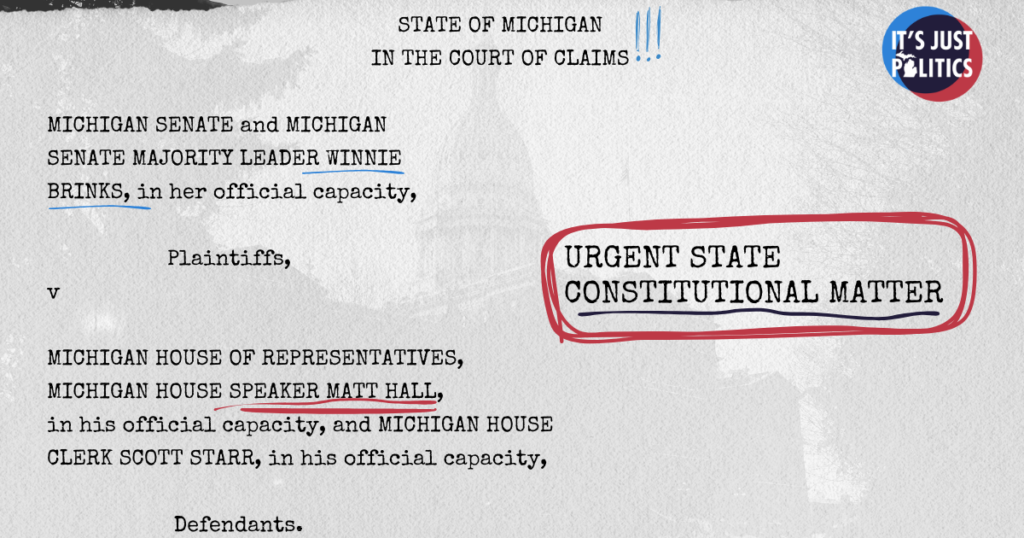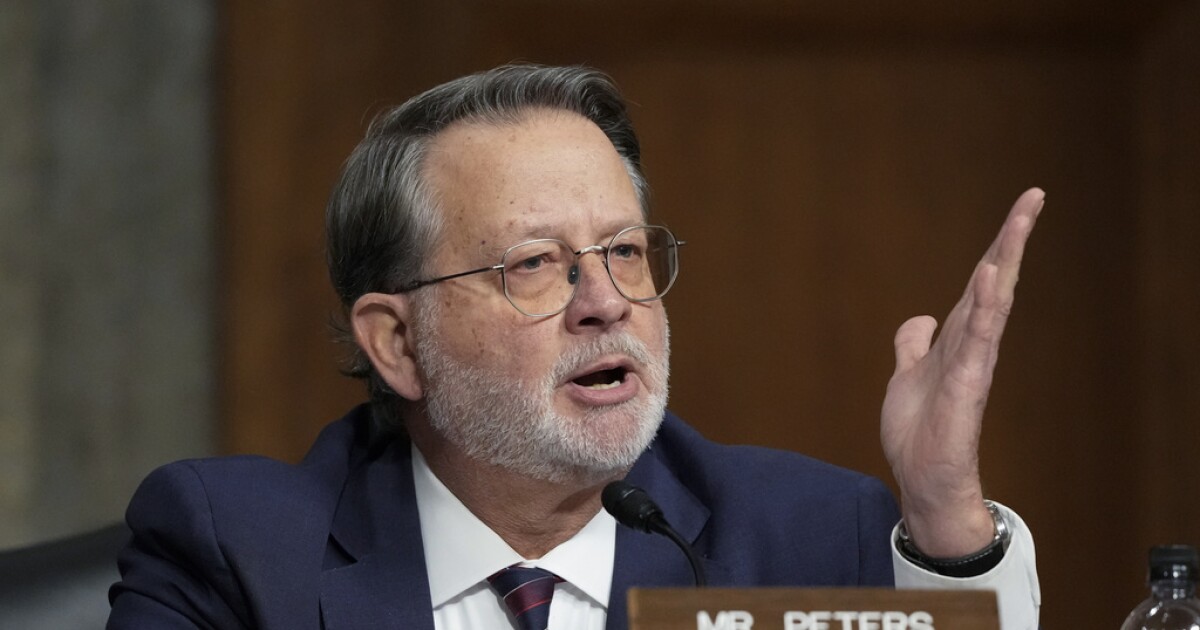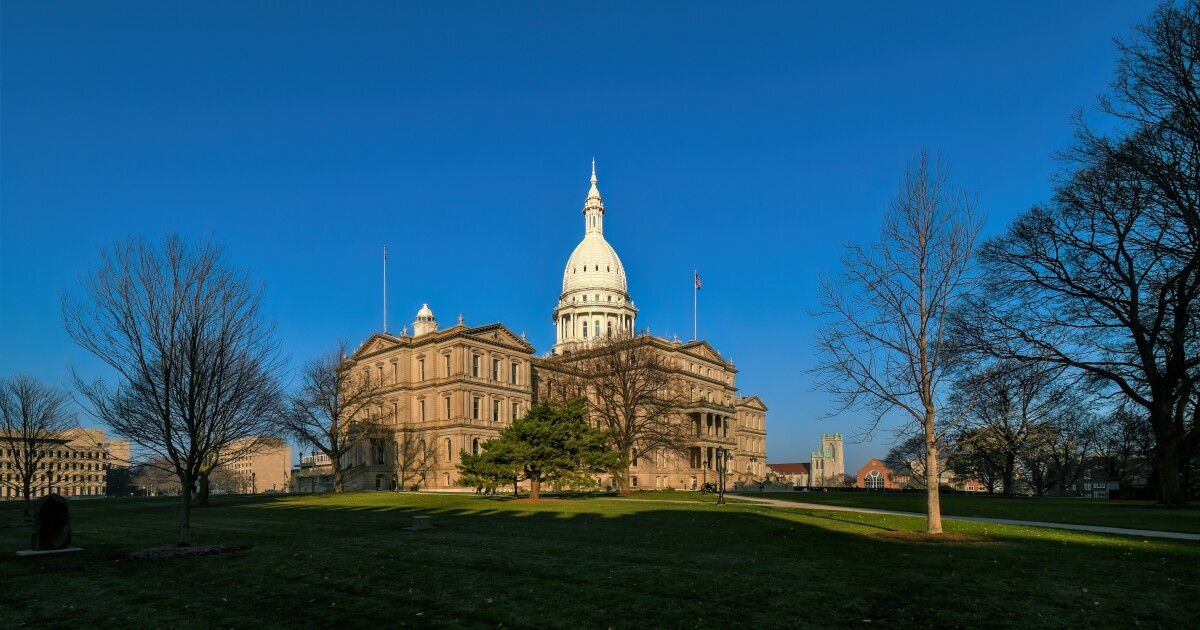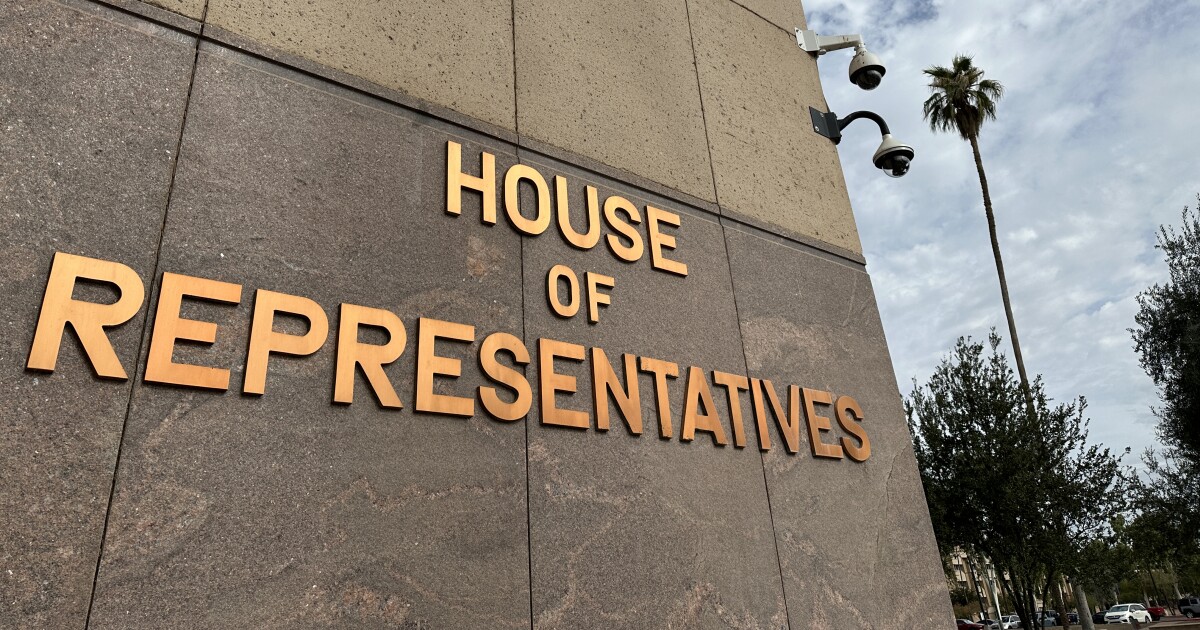Hi! You’re reading the It’s Just Politics newsletter. Subscribe here to get it delivered to your inbox, and listen to the It’s Just Politics podcast for all the political news you need each week.
As the nation focuses on potential constitutional challenges in Washington D.C., a smaller-scale but significant constitutional quandary is playing out in Lansing, Michigan. The heart of the matter is whether the legislative process can be stalled by a chamber withholding bills from the governor’s desk after passage by both the state House and Senate.
The Core of the Dispute
At the close of the previous state House session, nine bills passed by the Democrat-led chamber were left in limbo, not forwarded to Governor Gretchen Whitmer. With Republican Matt Hall stepping in as House Speaker in January, the delay in transmission of these bills was flagged by the chamber’s new clerk. A legal review was initiated by Hall to determine the next steps, including the potential forwarding of these bills.
The Democrat-majority Senate has since filed a lawsuit, claiming Hall’s actions represent an “attempt to place themselves above the law.” The legal tangle raises significant constitutional questions, primarily whether a legislative chamber can indefinitely retain bills, effectively circumventing the governor’s veto power.
Arguments from Both Sides
Senate Democrats argue that all bills approved by both chambers should be presented to the governor, as per the state constitution. Senate Majority Leader Winnie Brinks emphasized, “The constitution is clear: Every bill passed by the Legislature shall be presented to the governor before it becomes law.”
In contrast, the House Republicans argue that the obligation to present a bill to the governor lies solely with the legislature that passed it, not successive bodies. Hall maintains there is no controversy, suggesting the bills are under review for technical issues, albeit acknowledging that corrections would necessitate new legislation in the current term.
Judicial Review and Broader Implications
The Michigan Constitution mandates a 14-day timeline for the governor to act on bills once delivered, but no deadline exists for the legislature to forward them, leading to the present impasse. Law professor Nicholas Bagley notes, “It seems like the constitution should have some guideposts about this eventuality, but you can’t think of everything.” This matter is slated for review by Judge Sima Patel, with arguments scheduled for February 24th.
Broader Legislative Context
Among the bills caught in this legislative limbo are measures impacting public assistance, public employee benefits, and regional taxation for Detroit museums. These contentious issues highlight the broader political dynamics at play in Michigan’s legislative process.
Related Political Developments
In tandem with the constitutional debate, Governor Whitmer has proposed a $3 billion road funding plan, including taxes on Big Tech and marijuana products, revisiting the “pot for potholes” concept. Meanwhile, the state Senate has passed a minimum wage proposal amid ongoing legislative negotiations.
In another political maneuver, Senate Republicans are urging for a special election to fill a vacant state Senate seat, potentially impacting the current 19-18 Senate balance. With Whitmer abroad, the request has been directed to Lt. Gov. Garlin Gilchrist.
—
Read More Michigan News










